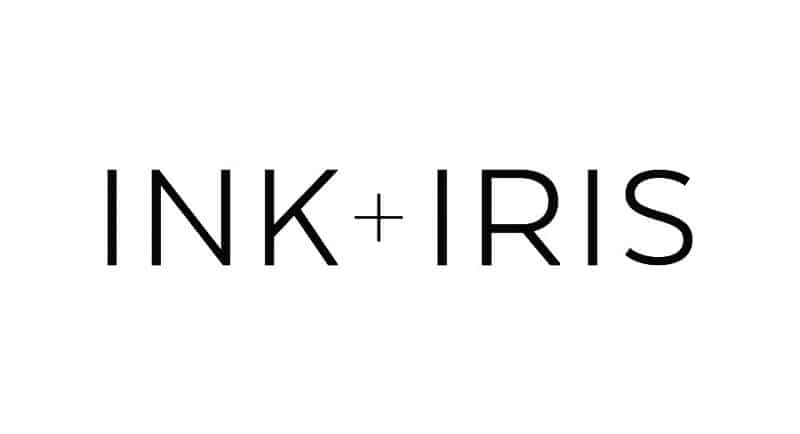Ink+Iris recently completed its six-month trial of the Four Day Week (4DW) – Global ANZ Pilot Program.
The agency was one of 30 companies across Australia and New Zealand participating in the program, with no loss of pay, to see if their business reaps the benefits of increased productivity from happier and healthier employees.
Co-founder Rachada Tepsatra shared her honest thoughts to Mediaweek about working four days a week, the pros and cons, and if the industry can adopt a new work-week format.
The verdict from Ink+Iris
Tepsatra proudly declared the program “a resounding success” for the Ink+Iris team.
“The main reason we embarked on the ANZ pilot study in the first place was that we believed we could deliver the same level of output with greater productivity in four days instead of five while gifting our people – our greatest asset – more time to spend doing the things they love,” she said.
“With an extra day to properly rest and recharge creative batteries, we expected to reap the rewards of a happier, healthier and more motivated team,” she added.
Tepsatra said their leap of faith had boosted productivity across the Ink+Iris team, such as greater engagement, fewer sick days, happier and more motivated staff, more focused creativity and enhanced individual empowerment.
Tepsatra also highlighted that from a business perspective, Ink+Iris had matched the same level of business output compared to the six months before the trial and increased their billings.
“In short, after our six-month 4DW trial, our people can not only do their work in 4 days, but they can do it better,” she said.
And following a unanimous vote with their team in January, Ink+Iris will implement a 4 Day Work-week, maintaining the 100:80:100 model (100% of the pay, for 80% of the hours, for 100% of the output).
See also: Ink+Iris co-founder Rachada Tepsatra reveals why her agency has transitioned to a 4-day week
The impact on productivity, morale and work culture
The 4DW has positively impacted productivity and morale at Iris+Ink. The agency believes the five-day work week will eventually be seen as a “flawed and rigid way of working… that does not get the best and most out of an organisation’s greatest asset.”
“In the same way that flexible work-from-home arrangements is now regarded as the ‘norm’, one day, so too will the 4DW be embraced as an ideal working model to fuel employee well-being, job satisfaction and empowered individuals,” Tepsatra said.
Tepsatra explained that Iris+Ink’s Hybrid Work model, which sees their team working three out of the four days from home, has had a positive response from employees, personally and professionally.
Staff shared with Tepsatra that they have experienced improved well-being, more time with family and friends, and more time to get inspired and creative away from their desks.
From a professional aspect, staff have had more motivation and energy to provide the greatest possible value on their working days, greater empowerment to own their projects and schedules, as well as gratitude and loyalty for adopting the 4DW.

Rachada Tepsatra with Ink + Iris co-founder Jo Wilson
Drawbacks of the four day work week
While there have been plenty of positives for the 4DW at Iris+Ink, Tepsatra highlighted one particular ‘downside’ they experienced is that no other organisation we are working with have adopted a blanket 4DW.
“Since our clients/partners/peers all work five days still, there has been a natural level of education, onboarding and management required,” she said, adding they recently welcomed a new client working a nine-day fortnight.
Tepsatra also noted that while they have chosen to close shop on a Friday, many industry and client deadlines still land on Friday by close of business.
The agency decided to offer urgent Friday turnarounds via our UK office to solve the matter. The 4DW is then inversed for the UK team by closing on a Monday and remaining open on Friday.
“At the end of the day, our success metric is that our client service and quality standards are maintained – if our clients aren’t happy, we cannot deem it a success.
“This is not dissimilar to many other 4DW companies who choose different 32-hour models that work for them,” she said, noting some models offer their staff to spread the 32 hours across Monday to Friday while other models give employees the flexibility to determine their days off as team schedules require.
“That being said, the client feedback has been overwhelmingly positive,” Tepsatra said.
“When we first announced our decision to pilot the 4DW, most clients emailed us to “tell them more”, or that “they wished their workplaces would do the same”.
Tepsatra added: “There is certainly a huge appetite for the 4 Day Week to be implemented across more and more organisations, which makes us proud to lead the way.
“The more that adopt the 4 Day Week, the easier the education, onboarding and management will be.”
Can the industry adopt 4DW?
While some may see the 4DW as a novelty work model suited for small to medium-sized businesses, Tepsatra had a far more optimistic view.
“4DW is for companies of all sizes in all industries – simply for the fact that its agile model can be tailored to an organisation’s inherent nature, priorities and, most importantly, its employees.
“I think put simply: if people want it badly enough, they’ll do whatever it takes to make it work,” she said.
Tepsatra referred to the recently published research report by the 4 Day Week Global Foundation, which labelled 2022 as the year of the 4 Day Week.
“It was named by CNN as one of the nine most important new ideas in business, and interest from large and small companies, non-profits, governments, and researchers have surged around the world,” she added, noting the huge appetite for it, particularly in a post-pandemic world.
Tepsatra noted that it is much easier for a small or medium-sized organisation to adopt the 4DW with faster decision-making and agility, especially if leaders buy in early. But she also pointed out that larger companies are slowly jumping on board.
“Toyota Sweden has implemented a 30-hour week since 2016, Microsoft Japan successfully implemented it seasonally (over summer), while Unilever NZ recently announced an extension of its 4DW 18-month pilot (80 employees), and Unilever Australia just embarked on their own 12-month trial (500 employees),” she shared.
Tepsatra also pointed out that countries like Belgium, Iceland, Scotland, Wales, and Spain have all either experimented, encouraged or introduced government policy that advocates for employees to have the option to work four-day weeks.
“Whether or not the individual organisation signs up to it is another matter,” she said.
Looking specifically at the media, marketing and advertising industries, Tepsatra noted that there had been significant underrepresentation, particularly in the UK and ANZ.
“I think as more and more people value time as the ultimate finite resource, as I’ve said before, we – as an industry – can use 4DW as a tool to help people craft a career and life that they love,” Tepsatra added.

Biggest lessons learnt from the 4DW pilot
Tepsatra shared that Ink+Iris learned two big lessons from the pilot program in terms of workplace culture and morale.
The first is that working four days a week is a two-way pact between employer and employee, something they have made clear and continue to make clear with the model.
“In return for increased productivity, consistent output, and happy clients, we will gift our team a three-day weekend. It’s a ‘perk’, not an expectation, which fuels commitment, motivation, and passion to ensure it’s something we can maintain ongoing,” she said.
“Eventually, one day, when the rest of the world jumps on board, it may certainly evolve into an expectation as hybrid WFH models have, but for now, in this early pioneering period, the language around ‘pact’ makes it self-fulfilling and ownable,” she added.
Secondly, Tepsatra noted that the 4DW is not a band-aid solution to inherent cultural problems in an organisation.
“The core prerequisite you need in place for 4DW to succeed is TRUST,” she said.
“Without trust in the first place, any radical initiative like the 4DW will fail. You have to treat your employees as adults and trust them to get the work done. And vice-versa.
Tepsatra highlighted that while the 4DW is not a one-size-fits-all approach, establishing trust, transparency, and openness in an organisation is imperative and a non-negotiable for all.
